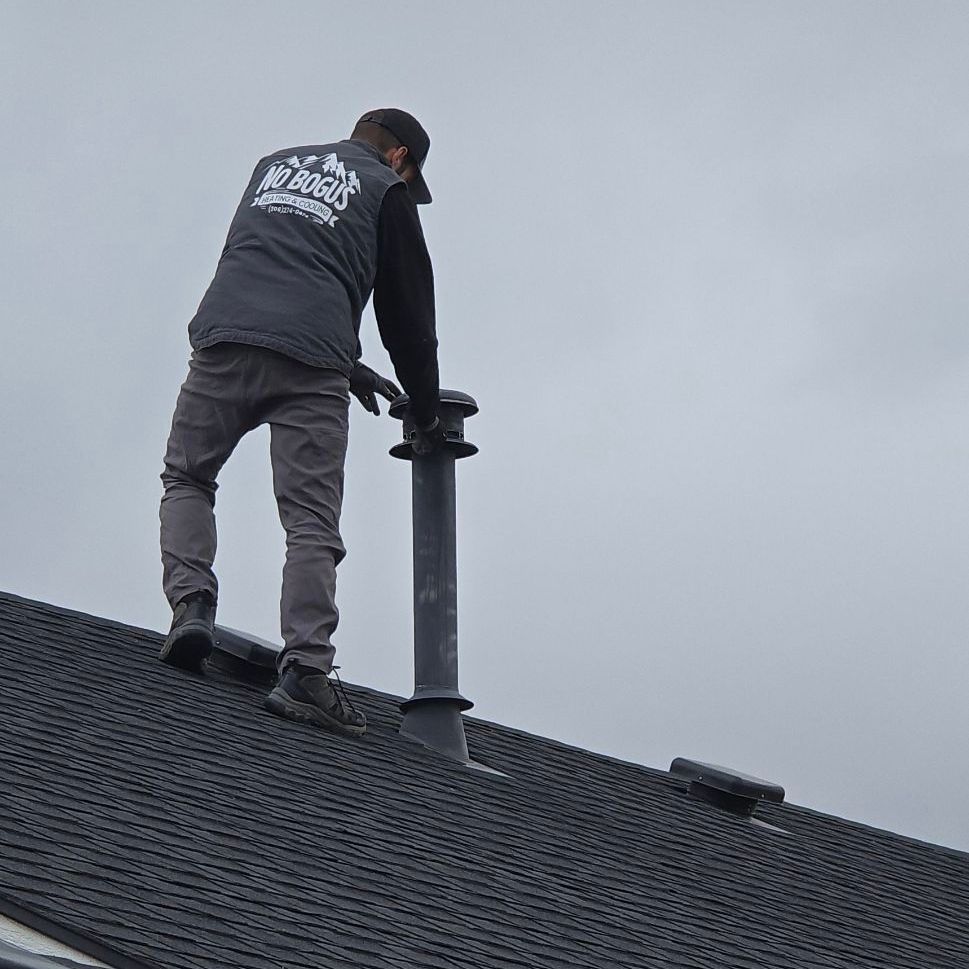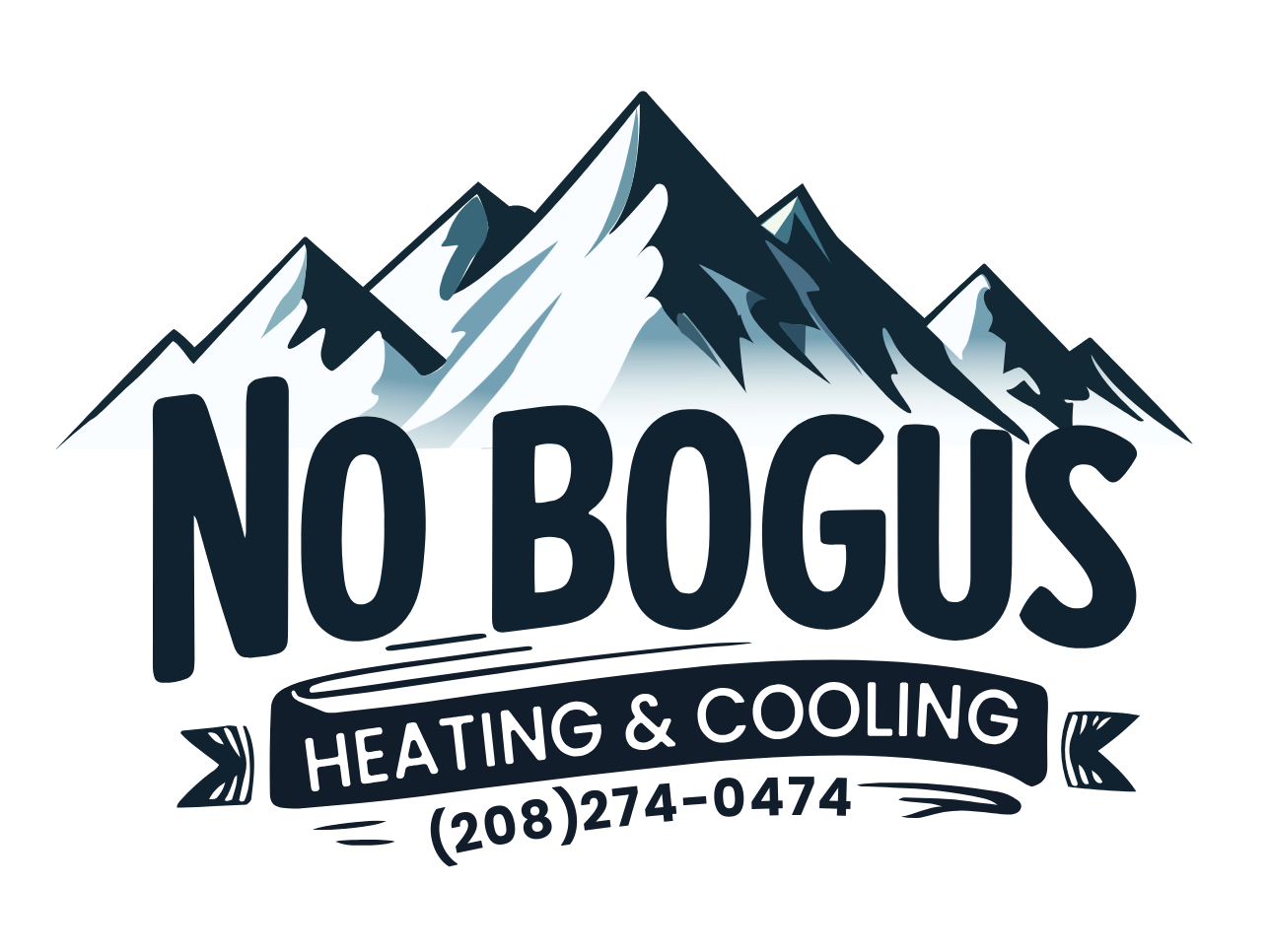FAQs
Frequently Asked Questions
Our team is dedicated to providing top-notch services, from AC repair and installation to furnace maintenance and duct cleaning. Whether you're looking to improve your indoor air quality or explore advanced home safety solutions, we've got you covered. Browse through our FAQs to find expert insights and practical advice tailored to your heating and cooling needs.
-
How do I know if my AC needs repair?
If your AC is blowing warm air, making unusual noises, or struggling to maintain the set temperature, it may need repair. Other signs include frequent cycling, high energy bills, and leaks. If you notice any of these issues, it's best to have a professional evaluate your system to prevent further damage.
-
How quickly can you respond to an AC repair request?
We prioritize swift response times for AC repair requests. Our team aims to address your concerns as quickly as possible, often offering same-day service. Timely repairs are crucial to maintaining optimal comfort and preventing more extensive issues.
-
Can you help with removing and disposing of my old AC unit?
Yes, we offer removal and disposal services for old AC units. Our team handles the process safely and responsibly, ensuring compliance with environmental regulations. This service is part of our commitment to making AC installation seamless for our clients.
-
What are the benefits of upgrading to a new AC system?
Upgrading to a new AC system offers improved energy efficiency, leading to lower utility bills. Modern systems provide enhanced cooling performance and quieter operation. They come with advanced features like programmable thermostats for better climate control. Upgrades also reduce the risk of repairs with more reliable components. Additionally, newer models are environmentally friendly, using refrigerants with lower environmental impact. Overall, a new AC system ensures increased comfort and cost savings.
-
Why is regular AC maintenance important?
Regular AC maintenance is crucial for ensuring system efficiency and longevity. Maintenance involves cleaning, inspecting components, and identifying potential issues before they become major problems. It helps improve performance, reduce energy consumption, and prevent unexpected breakdowns.
-
Can regular maintenance improve my AC’s energy efficiency?
Yes, regular maintenance can significantly improve your AC's energy efficiency. By cleaning filters, checking for leaks, and ensuring components are functioning optimally, your system will run more smoothly. This can lower energy bills and reduce your carbon footprint.
-
How do I know if I need a new thermostat?
If your thermostat is unresponsive, inaccurate, or causing frequent cycling, it may be time for a replacement. Older models lacking programmable features might also warrant an upgrade to enhance efficiency and convenience within your home.
-
How can a thermostat improve energy efficiency?
A programmable or smart thermostat can optimize energy usage by adjusting temperatures based on your schedule. It reduces energy waste by ensuring your HVAC system operates only when needed, leading to lower energy bills and enhanced comfort.
-
Is a ductless system suitable for every home?
A ductless system is versatile and suitable for many types of homes, especially those without existing ductwork. It’s ideal for specific zones like room additions or older homes. However, consulting with a professional can determine the best fit for your needs.
-
What is the maintenance process for ductless systems?
Maintenance for ductless systems includes cleaning filters and coils, checking for refrigerant leaks, and inspecting electrical connections. Regular maintenance ensures efficient operation, prolongs the unit's lifespan, and maintains optimal cooling and heating performance.
-
Are heat pumps energy efficient in all climates?
Heat pumps are generally energy-efficient, but their efficiency can vary by climate. They perform best in moderate climates. In colder regions, they may require auxiliary heating. Newer models with advanced technology can enhance efficiency across more climates.
-
How long does a heat pump typically last?
A heat pump typically lasts 10-15 years with proper maintenance. Factors like usage, climate, and quality of the installation can affect its lifespan. Regular maintenance is key to achieving maximum longevity and performance from your heat pump.
-
Can you repair all types of furnaces?
Yes, we repair all types of furnaces, including gas, electric, and oil models. Our team has the expertise to diagnose issues and make necessary repairs, ensuring your system operates efficiently and safely throughout the heating season.
-
What are signs that my furnace needs repair?
Signs that your furnace needs repair include unusual noises, inadequate heat, frequent cycling, and higher energy bills. A noticeable increase in dust or dry air may also indicate an issue. Prompt repairs can prevent further damage and ensure safety.
-
How can a new furnace improve my home’s efficiency?
A new furnace can significantly improve home efficiency by utilizing modern technology for better heat distribution. High-efficiency models reduce energy consumption, lowering utility bills. Improved reliability ensures consistent warmth, enhancing overall home comfort.
-
How do I choose the right furnace for my home?
Choosing the right furnace involves considering factors like home size, insulation, climate, and energy efficiency ratings. Consulting with a professional ensures proper sizing and selection of a furnace that meets your heating needs and budget.
-
Why is furnace maintenance important?
Furnace maintenance is essential for ensuring safe and efficient operation. Regular inspections and cleanings prevent breakdowns, improve air quality, and detect potential hazards. Maintenance extends the furnace's lifespan and ensures optimal performance during colder months.
-
Can maintenance prolong the life of my furnace?
Yes, regular maintenance can prolong the life of your furnace. Routine check-ups catch minor issues before they escalate, keeping the system running smoothly. This extends the lifespan, ensuring your investment provides reliable service for many years.
-
What is the process of duct cleaning?
Duct cleaning involves inspecting the ductwork, removing debris and dust, and sanitizing components. Specialized tools are used to dislodge dirt and contaminants, improving air quality and HVAC efficiency by ensuring unobstructed airflow.
-
Are there signs that my ducts need cleaning?
Signs your ducts may need cleaning include visible dust, debris near vents, musty odors, and increased allergy symptoms. If your HVAC system struggles to maintain temperatures or cycles frequently, duct cleaning can improve efficiency and air quality.
-
What factors affect indoor air quality?
Indoor air quality is influenced by pollutants like dust, pet dander, mold, and chemicals from cleaning products. Poor ventilation, high humidity, and outdated HVAC systems can also degrade air quality. Regular maintenance and air purification help mitigate these factors.
-
How can I improve indoor air quality in my home?
Improve indoor air quality by regularly changing air filters, using air purifiers, and maintaining proper ventilation. Control humidity levels and keep surfaces clean to reduce allergens. Professional duct cleaning and regular HVAC maintenance enhance air quality significantly.
-
What home safety services do you offer?
We offer comprehensive home safety services, including fire risk evaluations, carbon monoxide detection, and electrical system assessments. Our services also cover guidance on slip and fall prevention, and maintenance of critical safety devices to ensure a secure living environment.
-
What are common HVAC-related safety hazards?
Common HVAC-related safety hazards include carbon monoxide leaks, electrical malfunctions, and fire risks from outdated or malfunctioning equipment. Regular inspections and maintenance can mitigate these hazards, ensuring safe operation and protecting your household.
-
How do I know if my heat exchanger needs servicing?
Signs your heat exchanger needs servicing include strange odors, soot buildup, unusual noises, and carbon monoxide alarms. Regular inspections help identify issues early, preventing costly repairs and ensuring safe operation.
-
What is a heat exchanger, and why is it important?
A heat exchanger is a crucial component of furnaces and heat pumps, transferring heat between fluids or air without mixing them. It ensures efficient operation, providing consistent heating. A malfunctioning exchanger can lead to inefficiency and safety risks.
-
What are the benefits of duct zoning?
Duct zoning offers customized temperature control for different areas of your home, enhancing comfort and efficiency. It reduces energy waste by allowing you to heat or cool only occupied zones, resulting in lower utility bills and improved system performance.
-
How does duct sealing improve efficiency?
Duct sealing prevents air leaks, ensuring conditioned air reaches designated areas without loss. This improves system efficiency, reduces energy costs, and enhances indoor comfort by maintaining consistent temperatures throughout your home.
-
How do I choose the right water heater for my home?
Choosing the right water heater involves considering factors like fuel type (electric, gas, or solar), tank capacity, energy efficiency, and installation space. Consulting a professional can help you select a model that meets your household's hot water needs efficiently.
-
What maintenance is required for water heaters?
Water heater maintenance includes checking the anode rod, flushing the tank to remove sediment, inspecting the pressure relief valve, and checking for leaks. Regular maintenance ensures efficient operation, extends the unit’s lifespan, and prevents costly repairs or replacements.

Curious About Our Services?
No Bogus Heating and Cooling offers top-notch solutions for your home. From AC repair and installation to furnace maintenance and indoor air quality, we've got you covered. Enhance your home’s safety with our expert evaluations and proactive measures. Reach out today and discover how we can create a comfortable and secure environment for you!


